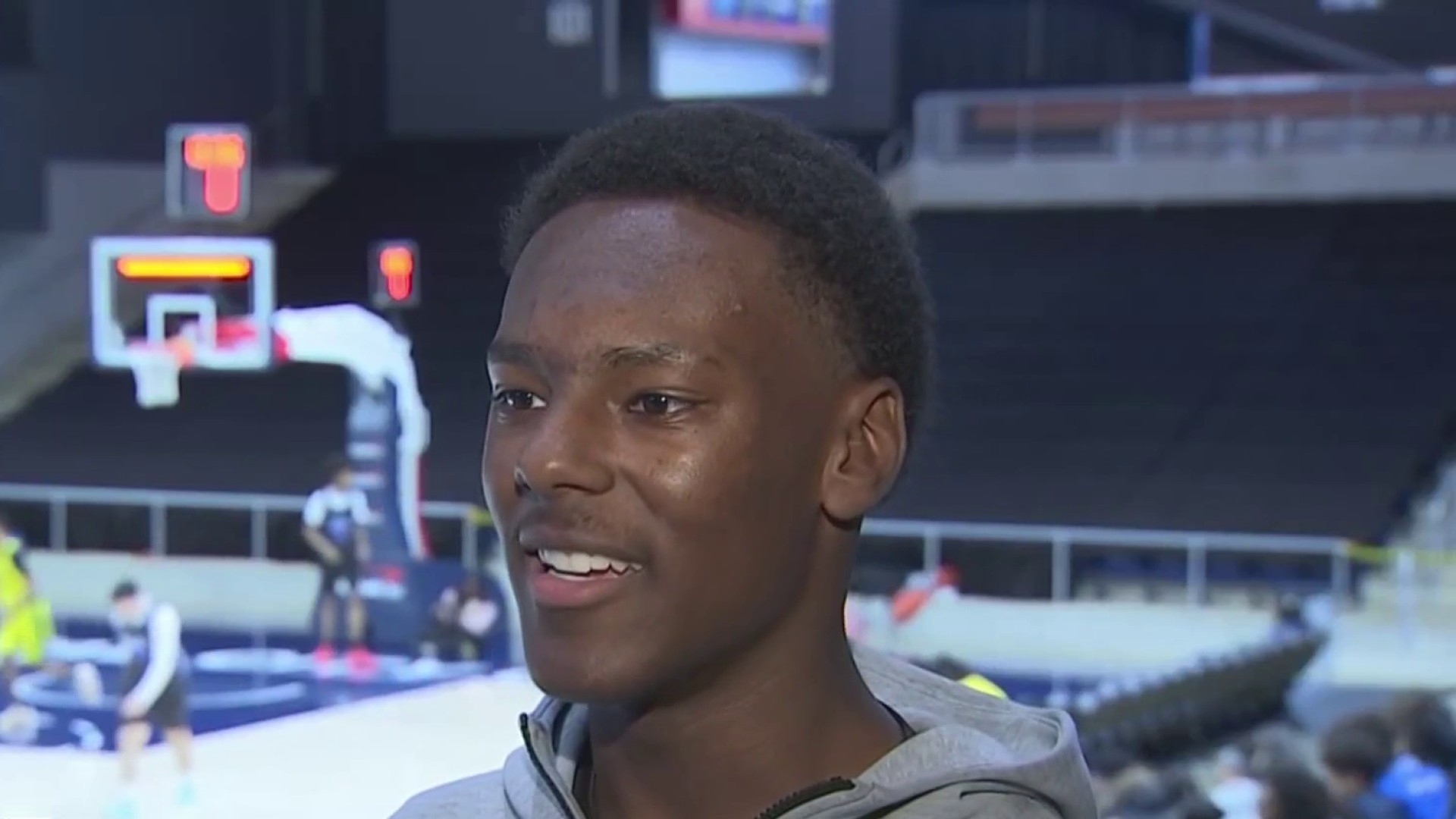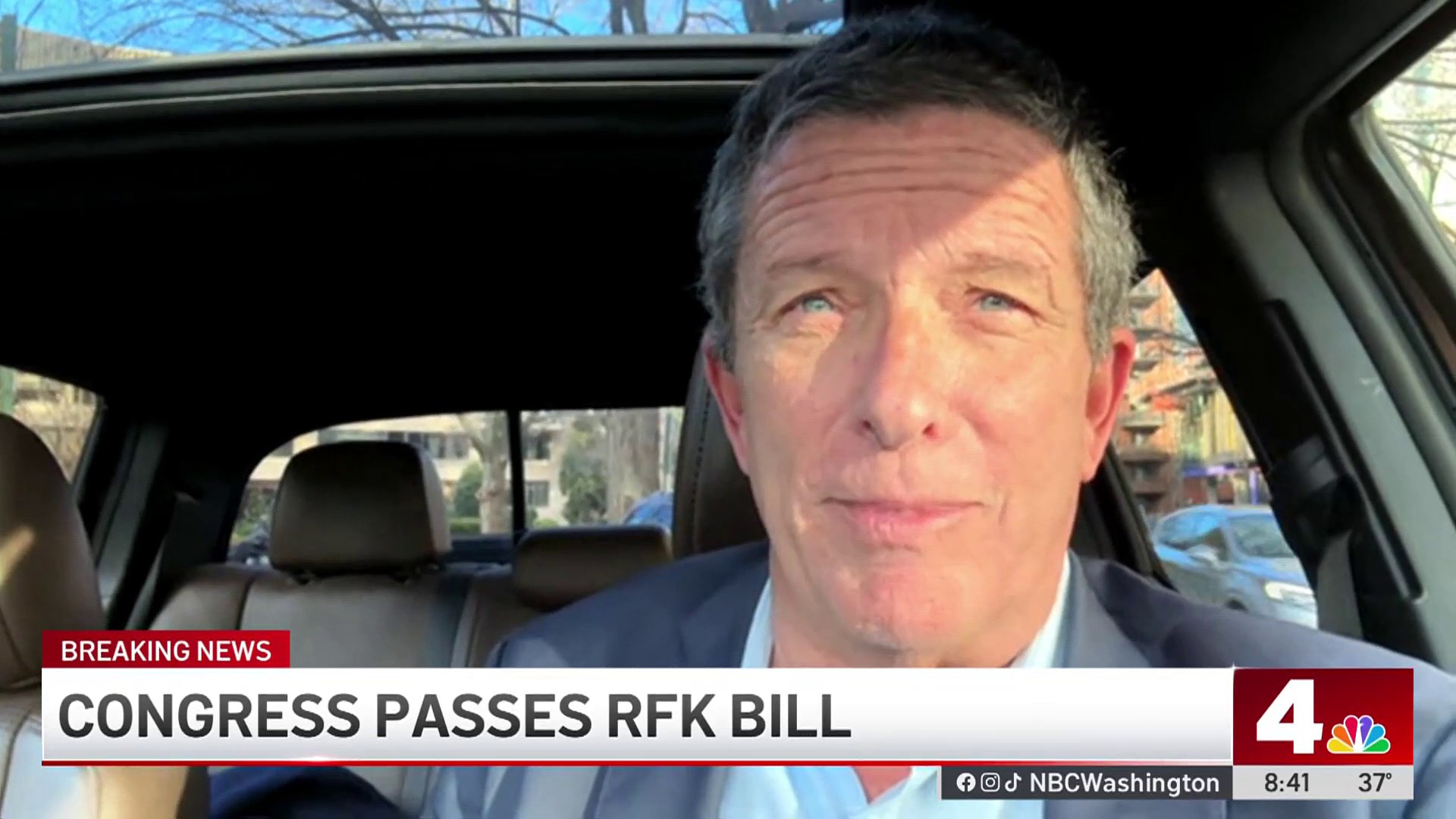Dorothy Height, an icon of the Civil Rights Movement and a longtime leader in the pursuit of equal rights for women, has died at the age of 98.
Height, who had been in the intensive care unit at Howard University Hospital since March 18, passed away at 3:41 a.m., according to a hospital official. No cause of death was immediately available.
Height has been a part of many of the nation's historic civil rights events.
"She spoke for women," Maudine Cooper, of the Greater Washington Urban League, told News4's John Schriffen. "And if people remember, she was part of what they used to call the Big Six -- five men and Dr. Height -- and her presence said to us that we could be wherever we wanted to be."
Height stood beside the Rev. Martin Luther King Jr. at the Lincoln Memorial as he gave his famous "I have a dream" speech. She had said she had directly known every American president since Franklin Delano Roosevelt. And she was on the stage in Washington for President Barack Obama's inauguration.
"I never thought I would live to see this," Height told the New York Times in regards to the inauguration of a black president. "This is real recognition that civil rights was not just what Dr. King dreamed. But it took a lot of people a lot of work to make this happen, and they feel part of it."
The Obamas issued a statement Tuesday morning on Height's passing:
"Michelle and I were deeply saddened to hear about the passing of Dorothy Height - the godmother of the Civil Rights Movement and a hero to so many Americans. Ever since she was denied entrance to college because the incoming class had already met its quota of two African American women, Dr. Height devoted her life to those struggling for equality. ... And even in the final weeks of her life -- a time when anyone else would have enjoyed their well-earned rest -- Dr. Height continued her fight to make our nation a more open and inclusive place for people of every race, gender, background and faith. Michelle and I offer our condolences to all those who knew and loved Dr. Height – and all those whose lives she touched."
In 1997, Height recalled being just a few feet from King during his "I have a dream" speech.
"He spoke longer than he was supposed to speak," Height had told the Associated Press. But after he was done, it was clear King's speech would echo for generations, she said, "because it gripped everybody."
Local
Washington, D.C., Maryland and Virginia local news, events and information
She was the only woman on the stage for that speech, though she wasn't allowed to speak herself.
"She was spiritually mature enough not to hold grudges and not to hold anger but to keep on pushing until men got the idea," Walter Fauntroy, who helped organize that 1963 march on Washington, told Schriffen.
Height was highly visible in the community, and she was always seen wearing one of her colorful, iconic hats.
"I think that was so important that she was able to be a woman and have her signature style while she was navigating the terrain of high politics and power and money at the same time, but she was always herself," said Andrea's Fine Hats owner Andrea Bray, who sold Height dozens of hats over the years.
Height was born in 1912 in Richmond, Va. At the age of 4 she moved with her family to Rankin, Pa., where she spent most of her childhood.
With her outstanding school record and her many awards for her exceptional oratory skills, she landed a scholarship that took her to New York University. She earned both bachelors and masters degrees in psychology in just four years.
Her work career began as a case worker with the New York City Welfare Department. But she soon became a leader in the struggle for equal rights for both women and African-Americans. Her passionate commitment for the fight for equality led her to work for the desegregation of the Armed Forces, the reform of the criminal justice system, and for access to public accomodations for all people.
For more than 40 years Height served as the president of the National Council of Negro Women. She received 36 honorary doctorate degrees from some of the country's most outstanding colleges and universities. One of those degrees came from Barnard College in New York where, many years earlier, she was turned away as a freshman because the school had filled its quota of only two black students per academic year.
She is one of a select few Americans to win both the Presidential Medal of Freedom and the Congressional Gold Medal -- the highest civilian and most distinguished award presented by Congress.



